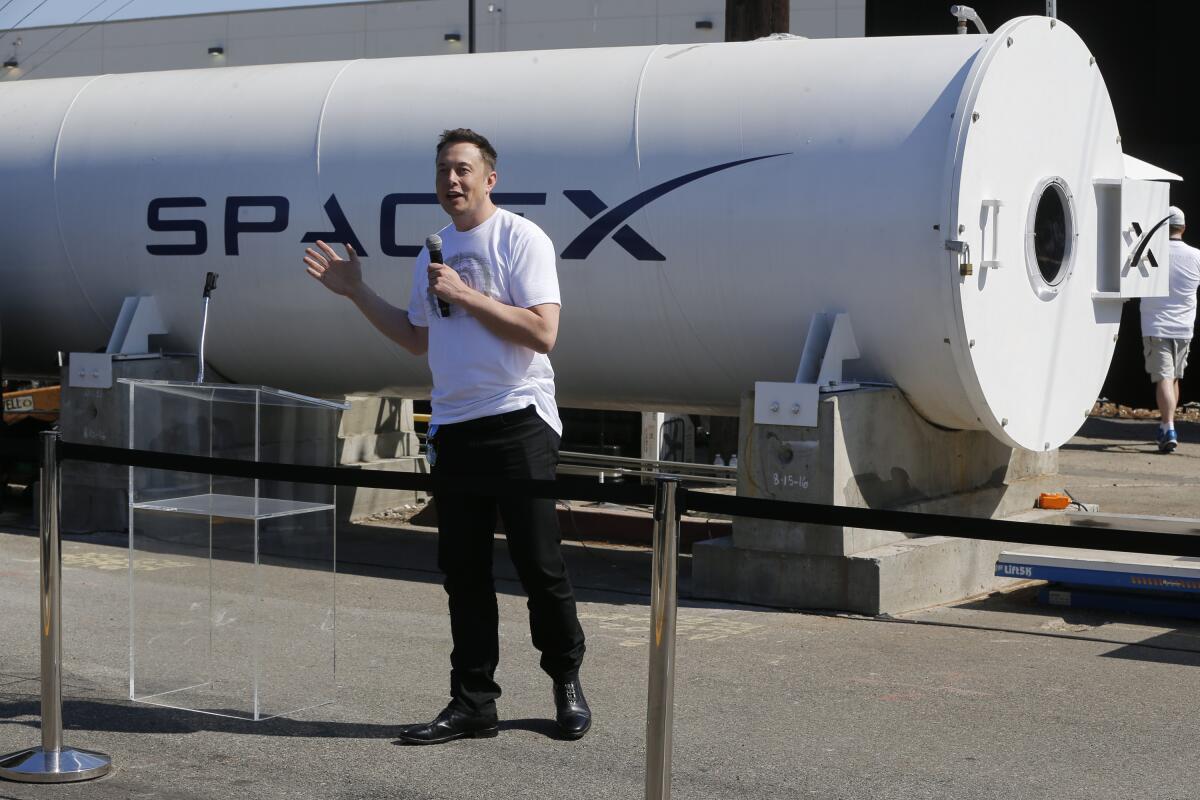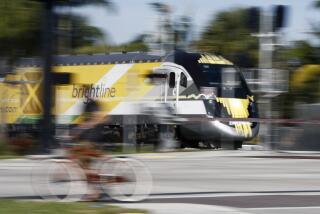Hyperloop TT gets Italy deal, giving Elon Musk’s transport vision a jolt of energy

- Share via
Hyperloop Transportation Technologies, one of the startups trying to build the high-speed transportation system dreamed up years ago by Elon Musk, won a bid to build a prototype in northern Italy.
The Venetian Motorway Concession, a regional highway operator known as CAV, has awarded HyperloopTT and its partners an 800-million-euro ($875-million) three-part tender that could eventually lead to a hyperloop along at least a portion of the 25-mile route from Padua to Venice, HyperloopTT said.
The Hyperloop TT deal could bring new energy to a technology and company where enthusiasm has dimmed recently. Founded in 2013 and with dual headquarters in Los Angeles and Toulouse, France, HyperloopTT last year had been poised for a high-profile merger with a blank-check firm led by some former Walt Disney Co. executives. But the public listing fell through in February.
So far, the concept for a 760-mph superhighway, which attracted a raft of entrepreneurs seeking to realize Musk’s vision, has failed to achieve much traction.
Musk’s own tube-based transportation company, Boring Co., built and operates some short tunnels under parts of Las Vegas and recently won county approval for more. The project uses Teslas to transport people, putting it well short of the billionaire’s original dream of vacuum tubes containing pods hurtling between cities at the speed of jet airplanes.
Another company, Hyperloop One, gave up on passenger travel last year, although it said it was still pursuing plans for freight. A few other hyperloop efforts are at the concept stage in Europe, including in Switzerland and Holland.
Hyperloop TT’s Italian project starts small, with a 4-million-euro feasibility study, planned to commence later this year. If that succeeds, the 46-million-euro design phase begins. The last phase is a 750-million-euro prototype and field test along a subset of the route, with the exact length to be determined during the earlier phases. A spokesman for HyperloopTT said CAV held rights-of-way alongside its highways where the prototype could be built.
Well-funded startups set out to build super-fast transit; passengers are still waiting.
There’s other activity around European hyperloops, after several companies formed the Brussels-based Hyperloop Assn. to promote projects and work with regulators.
The greatest momentum is currently in China, where last year researchers tested a hyperloop-style train along a two-kilometer track in Shanxi province, according to state media. Last month, state media reported that the Chinese Academy of Engineering, which provides advice to the government, selected a route between the coastal cities of Shanghai and Hangzhou as the best site for China’s first city-to-city hyperloop.
More to Read
Inside the business of entertainment
The Wide Shot brings you news, analysis and insights on everything from streaming wars to production — and what it all means for the future.
You may occasionally receive promotional content from the Los Angeles Times.











